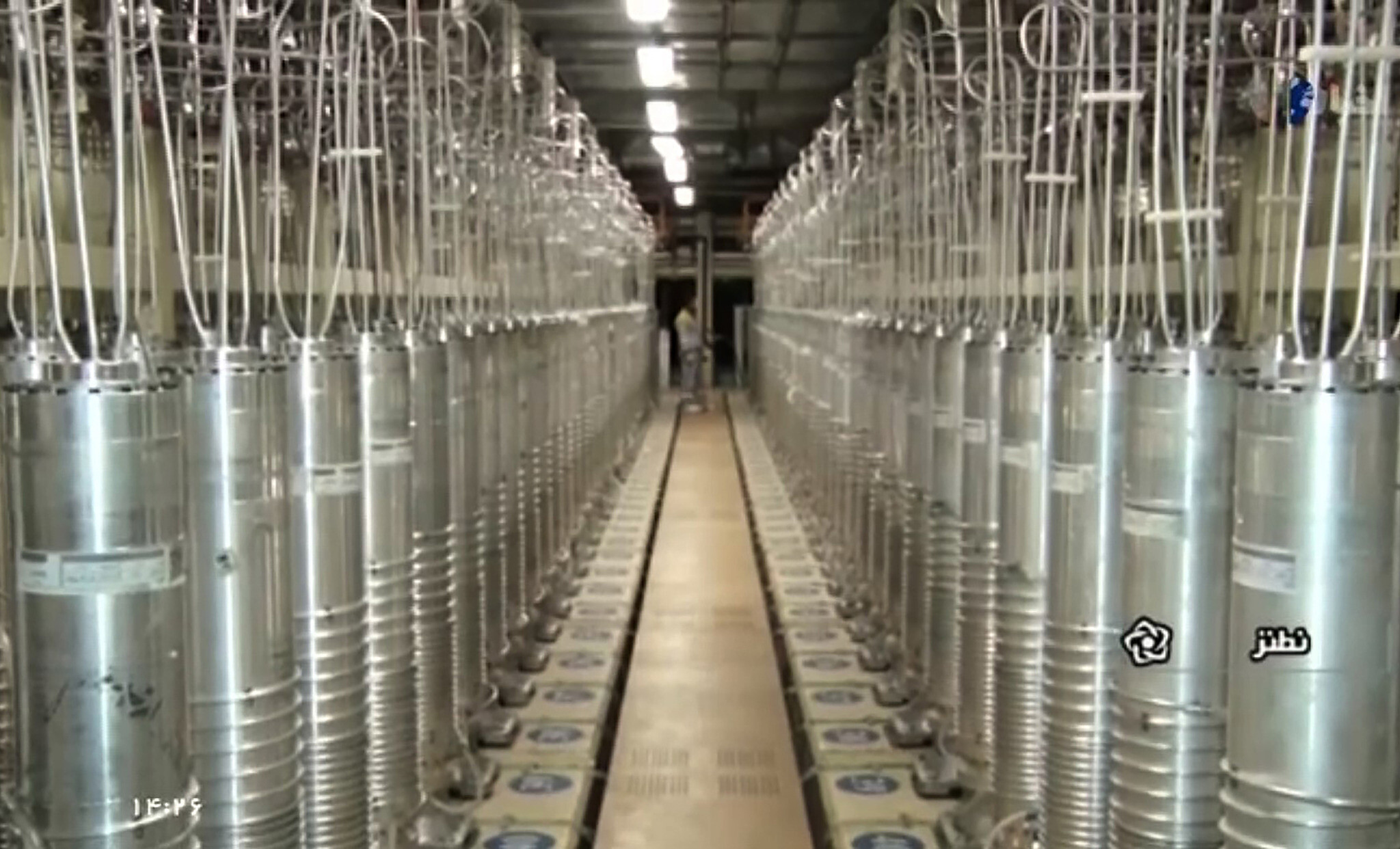File photo : Ex-UN nuclear inspector David Albright claims Iran already has enough enriched uranium for weapon . This image made from April 17, 2021, video was released by the Islamic Republic Iran Broadcasting, IRIB, state-run TV, shows various centrifuge machines line the hall damaged in a sabotage on Sunday, April 11, 2021, at the Natanz Uranium Enrichment Facility, some 200 miles (322 km) south of the capital Tehran (IRIB via AP, )
‘How could I tell you a thing like that now?’ He said
President-elect Donald Trump refused to say Monday whether he would support the US or Israel launching preemptive airstrikes on Iran to stop it from successfully building a nuclear weapon, following reports that he was mulling the move.
“Am I going to do preemptive strikes on Iran? Is that a serious question? How could I answer a question like that?” Trump, 78, told a reporter at his lengthy Mar-a-Lago press conference.
A second reporter at the Palm Beach, Fla., resort question-and-answer session then asked the incoming president if he would support Israel launching a preemptive strike.
“How could I tell you a thing like that now?” Trump shot back.
“You don’t talk about that before something may or may not happen. I don’t want to insult you, it’s just not something that I would ever answer having to do with there or any other place in the world,” he said.
The soon-to-be 47th president has recently expressed concern about Iran’s nuclear capabilities to Israeli Prime Minister Benjamin Netanyahu in phone conversations, according to the Wall Street Journal.
Tehran has long denied that it is producing nuclear weapons — despite reports in recent years that the nation is working to enrich its uranium supply to weapons-grade level.
Trump has also previously expressed great concern about the Iranians targeting him in an assassination attempt and told Time magazine in his 2024 “Person of the Year” interview last week that “anything can happen” when asked if he would go to war with Iran in his upcoming term.
The once and future president and his advisers have been deliberating about the best way to move forward with Iran, and have two main strategies that either include more military pressure by stationing more troops in the Middle East or giving more weapons to Israel, the Journal noted in its report.
In addition to the threat of a direct military attack, the Iranian regime could be slapped with economic sanctions.
Trump has insisted that he will end the Israel-Hamas war when he comes back into office and that it will be easier to achieve peace in the Middle East than in the Ukraine-Russia conflict.
“We had a very good talk. We discussed what is going to happen, and I’ll be very available on January 20,” Trump told reporters about his recent discussions with Netanyahu on the conflict.
In a related development former Israeli defense minister Yoav Gallant was cited as saying: Israel can strike Iran in a “forceful and sophisticated manner. If needed, we will not hesitate to act,” Jerusalem Post reported on Monday
“Israel’s October 26 strike against Iran in retaliation to the Islamic Republic’s October 1 attack on the Jewish state left a window of opportunities to target Iran before it achieves nuclear weapons”, Gallant told Washington Post columnist David Ignatius, as detailed in an opinion piece published on Saturday.
In another development the Israeli Army Radio quoted a military source as confirming that “there are intensive preparations to launch decisive strikes against the Houthis in Yemen.” As soon as the Israeli army made the statement , Yemeni media reported airstrikes on the Yemeni capital, Sanaa. Al Arabiya channel reported news of targeting the Ministry of Defense and Al-Hafa camp in Sanaa.
Earlier today the US Central Command announced that it carried out a precision airstrike against a key command and control facility run by the Houthis inside the territory they control in Sanaa.
The US military noted in a statement that the targeted facility is a center for coordinating Houthi operations, such as attacks against US Navy warships and commercial vessels in the southern Red Sea and Gulf of Aden.
The statement said that the strike reflects the US Central Command’s continued commitment to protecting US personnel, coalition forces, regional partners, and international shipping.
NY Post/ Ya Libnan

